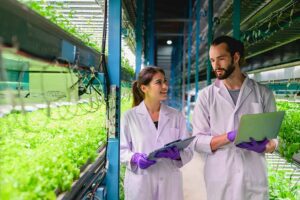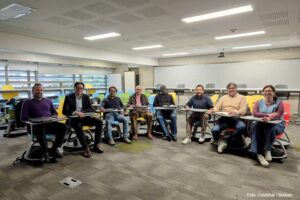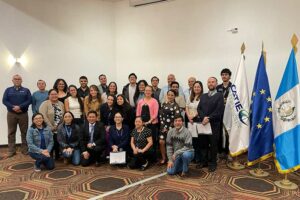Rural Associative Enterprises from the Central American Dry Corridor Completed a Management Training Process
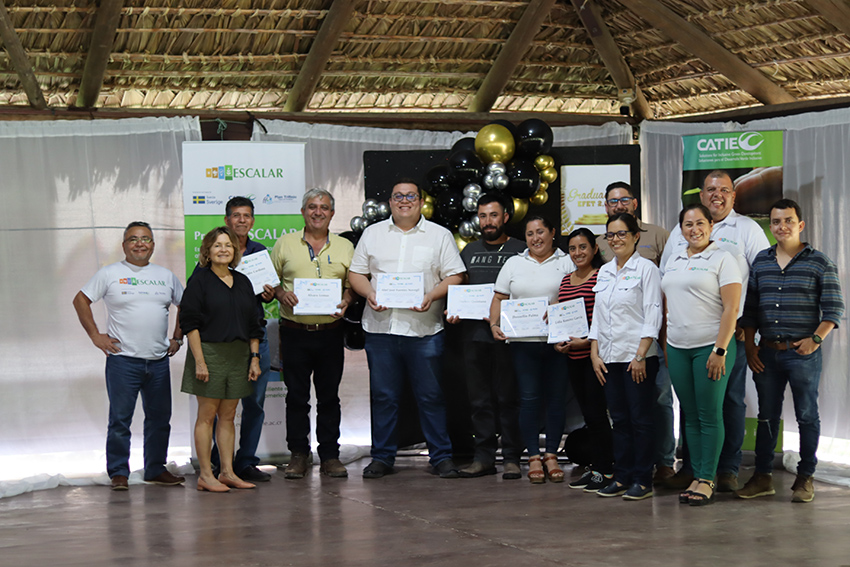
- Thirteen individuals from El Salvador, Guatemala, and Honduras graduated from the business management training process in 2023 through the Territorial Business Training Schools held in Esquipulas, Guatemala.
February 8, 2024. Rural associative enterprises in the Trifinio region strengthened their managerial capacities through the Territorial Business Training Schools (EFET) and Business Technical Assistance (ATE) during 2023, which were promoted by the ESCALAR project: Scaling Solutions for Climate Change Adaptation for Resilience and Migration Reduction in the Central American Dry Corridor, implemented by CATIE (Tropical Agricultural Research and Higher Education Center), with support from the Swedish Cooperation, in 17 municipalities of the Central American Dry Corridor, in the Trifinio region of El Salvador, Guatemala, and Honduras.
Throughout the EFET, a total of 13 individuals participated in the process, learning different concepts, methodologies, and practical tools that contribute to improving the capacities of key personnel for strengthening business management.
The training process began on July 26, 2023, in the city of Esquipulas, Guatemala, with individuals holding strategic and administrative positions in five rural associative enterprises, which are part of the implementing partner organizations of the ESCALAR project. Participating were: Agricultural Integral Cooperative Cafetales (CAINCAFE) from Guatemala, Olopa Producers Association (APOLO) from Guatemala, Agropecuarian Producers Association of Suchitán (APAS) from Guatemala, Ecological Coffee Cooperative La Labor Ocotepeque (COCAFELOL) from Honduras, and the Río Lempa Company from El Salvador. These companies participated as implementing partner organizations of the ESCALAR project in the territory.
Anthony Gamboa, specialist in sustainable agribusiness at CATIE, led the training process and commented that there is a great opportunity in the region to strengthen managerial capacities in organizations formed by producers. "Many times we focus only on the productive part, but it is necessary to create conditions for the productive part to emerge, and for this reason, we carry out processes such as EFET, where capacities are strengthened through an andragogical process, which starts from what people know to generate and learn new tools that allow an improvement in their capacities and therefore also in resource management," detailed Gamboa.
In addition to Gamboa, in this process, the specialist in agribusiness at CATIE, Evelyn Chaves, participated as facilitator of the first and second modules, and the specialist in sustainable agribusiness and incubation of the ESCALAR project, Laura Rodríguez, as assistant and main liaison with organizations for module facilitation.
At the graduation ceremony, Leida Mercado, team leader of the ESCALAR project, was present and expressed her congratulations to all the graduates and the importance of this process for their organizations.
"We congratulate the organizations APOLO, APAS, CAINCAFE, COCAFELOL, and Río Lempa Company for their effort, dedication, and participation in this capacity strengthening that contributes to the growth and development of their rural enterprises," affirmed Mercado.
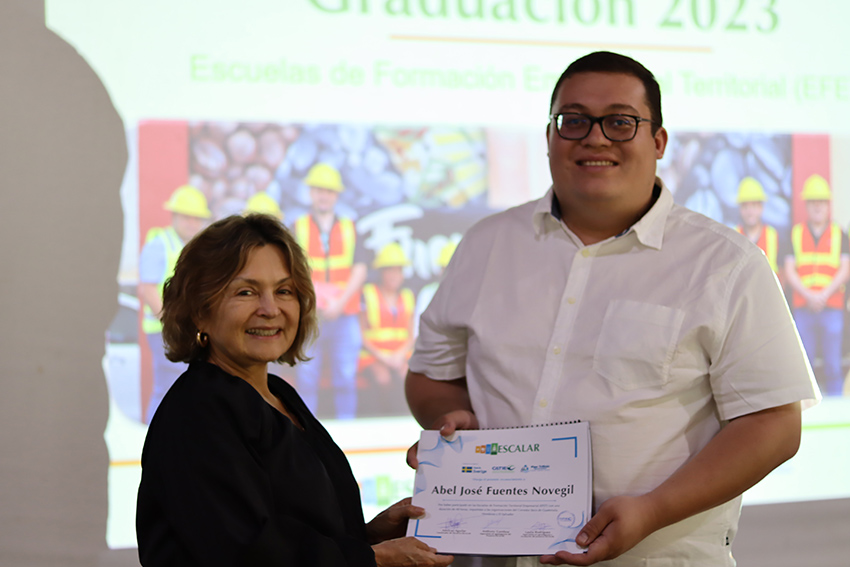
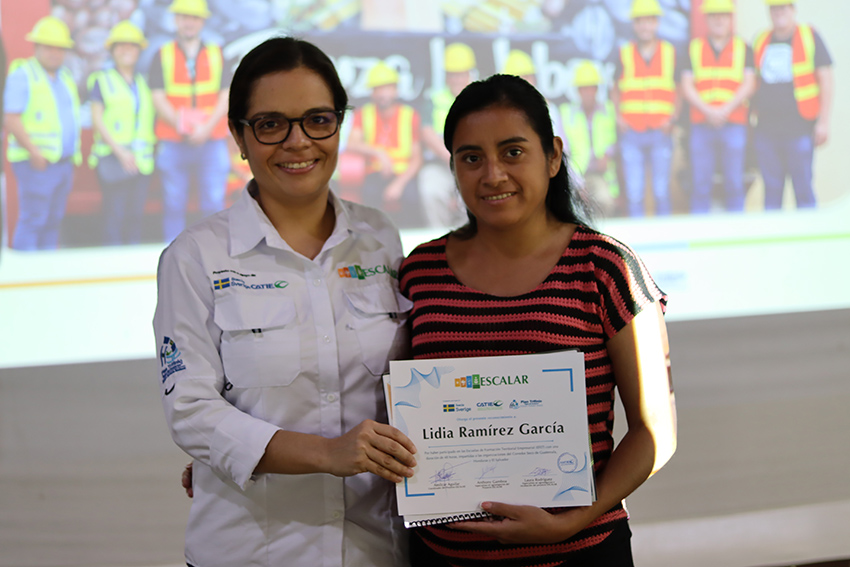
Leida Mercado, Team Leader of the ESCALAR project, and Abel Fuentes, from CAINCAFE R.L.
Laura Rodríguez, specialist in sustainable agribusiness and incubation of the ESCALAR project, and Lidia Ramírez, from APOLO.
Abel Fuentes, who is part of the CAINCAFE R.L. cooperative, shared emotional words on behalf of his generation: "I thank the ESCALAR project, CATIE, and the Swedish Cooperation for putting their work efforts in this region and in such important issues to strengthen cooperatives and rural enterprises. We had first-class classes with international professional staff and shared experiences that definitely let us know that we can grow."
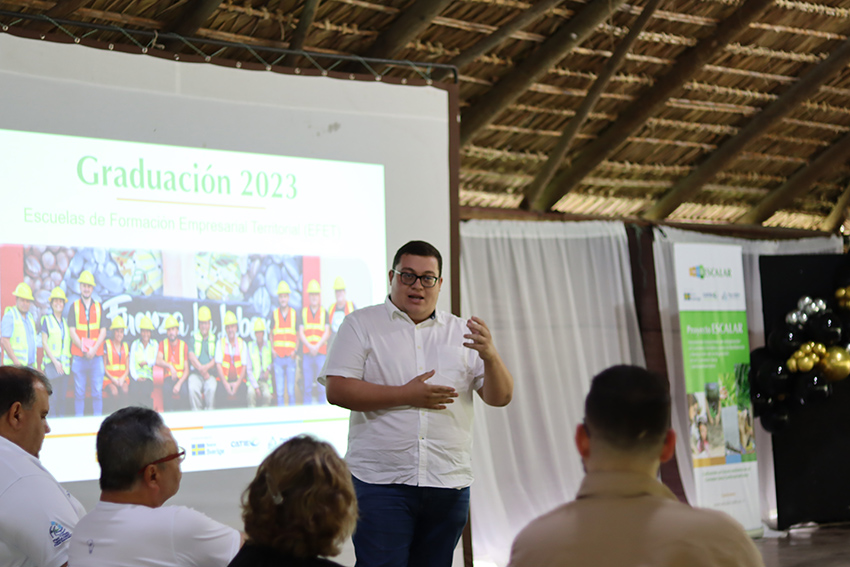
Abel Fuentes, CAINCAFE R.L. cooperative, Guatemala.
Amílcar Aguilar, territorial coordinator of the ESCALAR project, mentioned that the EFET is a space for collective knowledge construction and capacity building. Through the participants' previous experiences, the foundations are laid for increasing the competitiveness of rural associative enterprises and their insertion into sustainable and inclusive value chains.
"As the ESCALAR project, we are pleased to have established this space for encounter, exchange, and knowledge construction among rural associative enterprises, where key members such as administrative staff and directors of organizations, associations, and cooperatives participate," Aguilar pointed out.
The specialist in sustainable agribusiness and incubation of the ESCALAR project emphasized that the objective of the EFET is the creation of collective knowledge oriented towards reflection on the topics addressed with rural associative enterprises and their organizational, business, and financial performance.
In 2024, the business strengthening process will continue working with ATE, which aim to develop specific capacities in each of the organizations through specialized advice on topics identified as a need in 2023.
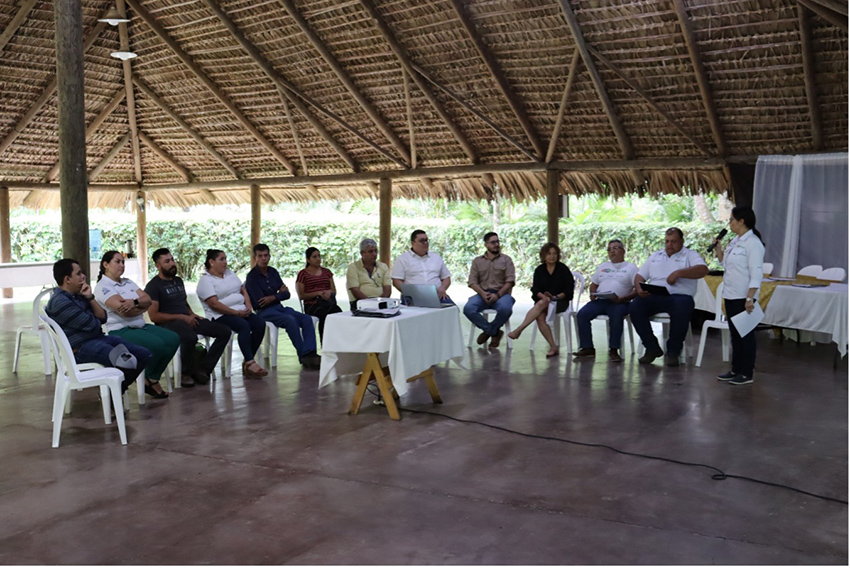
Graduation ceremony 2023, Esquipulas, Guatemala.
More information:
Anthony Gamboa
Specialist in Sustainable Agribusiness
Environmental Economics and Sustainable Agribusiness Unit
ESCALAR Project
CATIE
anthony.gamboa@catie.ac.cr
Laura Rodríguez
Specialist in Sustainable Agribusiness and Incubation
Environmental Economics and Sustainable Agribusiness Unit
ESCALAR Project
CATIE
laura.rodriguez@catie.ac.cr
Written by:
Donaji García
Communicator for the ESCALAR Project
Environmental Economics and Sustainable Agribusiness Unit
CATIE
Donaji.garcia@catie.ac.cr

